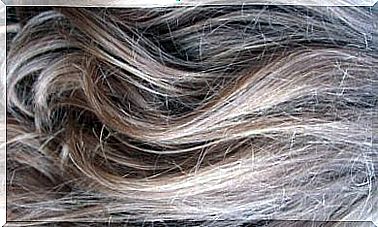Diet For Psoriasis: Various Recommendations
Did you know that the right diet can help you to relieve the symptoms of psoriasis? You can find out more about this topic in today’s post.

Psoriasis, also known as psoriasis, is a skin disease that affects around 2% of the world’s population. The most common complaints are irritated and reddened skin as well as typical skin changes, also called plaques. In addition to other measures, proper nutrition can also help with psoriasis .
You cannot cure this disease with it, but you can alleviate the symptoms. That’s why we recommend reading today’s article and changing your diet accordingly.
Proper nutrition for psoriasis

In general, most participants ate the following diet:
- gluten free,
- little or no alcohol
- and lots of vegetables and vitamin D.
A high percentage of the participants examined confirmed that they followed a special diet to control psoriasis with relative success. The following forms of nutrition were used: Dr. Pagano diet, vegan diet, paleo diet and, to a lesser extent, Mediterranean food, vegetarian diet, gluten-free and low-carbohydrate or high-protein diet.
Diet for psoriasis: How to alleviate symptoms
Then we’ll present you with a list of foods that can help you control the symptoms of psoriasis. We have compiled this list based on the recommendations published in the journal JAMA Dermatology .
1. Diet for psoriasis: fruits and vegetables

The following types of fruit and vegetables can relieve symptoms caused by psoriasis. The beta-carotene (vitamin A), antioxidants and minerals (such as zinc, selenium and magnesium) it contains are particularly important. Include these foods in your eating plan on a regular basis:
- Carrots
- paprika
- pumpkin
- spinach
- broccoli
- avocado
- Apricots
- mango
- Raspberries
- blueberries
- Blackberries
2. Omega-3 is very helpful for psoriasis
Omega-3 fatty acids are known for their anti-inflammatory effects. Don’t hesitate to include foods that contain these healthy fatty acids in your daily diet. These include:
- Oily fish: salmon, anchovies, herring, mackerel …
- seafood
- Nuts and seeds
- Legumes, such as soy and chickpeas
3. Whole grains

Consuming fiber and probiotics is also very important! So that the organism can absorb important nutrients well, you have to keep the intestinal flora healthy.
We therefore recommend that you switch to whole grain products and avoid white flour as much as possible. Whole grains provide important fiber and also many minerals.
Regularly consume rice, grains, millet, oats and whole grain products made from them. You can also include kefir and yogurt in your diet, which also contain important probiotics.
4. Vitamin D for psoriasis
Various studies show that vitamin D is very important for reducing inflammation. That is why it should not be missing from psoriasis. Oily fish, chicken eggs and sunflower seeds, for example, contain vitamin D. A short sunbath is also worthwhile in order to synthesize vitamin D.
You should avoid the following foods if you have psoriasis
Not all of the foods on this list are strictly prohibited, but you should keep them moderate and only consume them occasionally.
1. Alcohol for psoriasis

2. Processed and sugared foods
Psoriasis is an inflammatory disease. It is therefore important to avoid finished and processed foods as much as possible, as these promote inflammation and are low in nutrients. Therefore, avoid, for example, margarine, instant soups, sweetened soft drinks, ready-made sauces, etc.
3. Red meat
Experts usually recommend a diet low in red meat. In particular, high-fat meat should be avoided. This promotes the formation of cytokines, which have anti-inflammatory effects and can therefore worsen symptoms caused by psoriasis.
4. Coffee and milk
These two products also increase the production of cytokines. Therefore , it is better not to drink coffee or milk regularly, but only in exceptional cases.
5. Is gluten allowed in psoriasis?

Various studies suggest that a high percentage of people who suffer from psoriasis also have gluten intolerance. In this context, however, opinions differ.
While some experts recommend eliminating gluten from the diet as a preventive measure, others believe that this could be counterproductive if gluten intolerance cannot be proven. Consult your doctor for advice on what is best for your case.
6. Fats
Regular consumption of saturated and trans fats could worsen the symptoms of inflammation in psoriasis. For this reason, it is advisable to avoid harmful fats as much as possible.
Conclusion
For psoriasis, diet is an important support to bring the symptoms under control. Get help from your doctor and a nutritionist to adjust your eating plan accordingly.
As you can see, it is also a very healthy, balanced diet that would actually be recommended to everyone. Do not forget that sport and healthy lifestyle habits are also very important to maintain health and quality of life!









